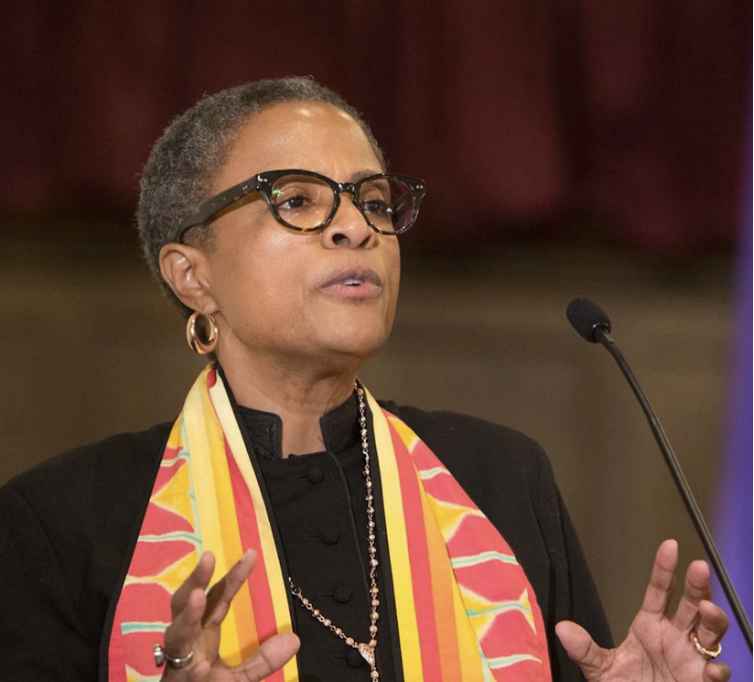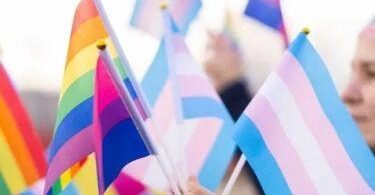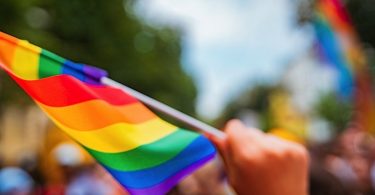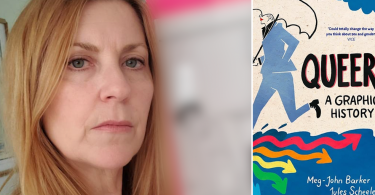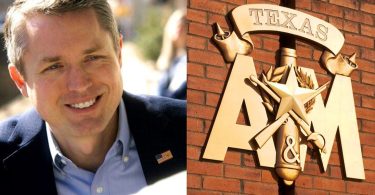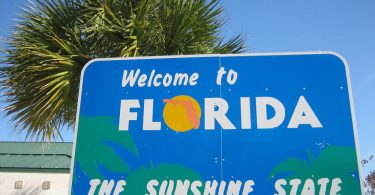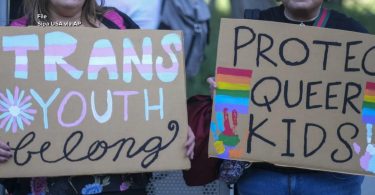At the bottom of the first page of the program for Spelman College’s Baccalaureate Service held on May 18, 2024, at the Georgia International Convention Center in College Park, a southwest suburb of Atlanta, is the last sentence in baccalaureate speaker Bishop Yvette A. Flunder’s bio, and perhaps for some the most jarring. It reads: “Bishop Flunder is a proud mother and grandmother and recently celebrated 40 years of commitment and marriage to her partner in ministry and life—Ms. Shirley A. Miller, a renowned Gospel music artist.” It is not unusual for queer people to exist in conservative Black religious spaces, whether parishioners or clergy. However, it is rare to encounter a faith leader like Flunder who has repeatedly chosen to tell the truth about her sexual orientation when, at the bare minimum, Black church politics can often demand adherence to a ‘don’t ask, don’t tell policy.’
A San Francisco native and third-generation preacher, Flunder is ordained in the United Church of Christ and the Metropolitan Community Church. Flunder founded the City of Refuge United Church of Christ in 1991 and is also the Presiding Bishop of The Fellowship of Affirming Ministries, a multi-denominational fellowship of 110 primarily African American Christian leaders and laity representing 56 churches and faith-based organizations from all parts of the United States, Mexico, and Africa.
“You have to understand that when I come, I bring my whole self,” Flunder said as she settled into her seat across from me in the large conference room inside the Convention Center following her baccalaureate address.
Bishop Yvette A. Flunder enters the Georgia International Convention Center for Spelman College’s Baccalaureate Service on May 18, 2024. (Image: Darian Aaron)
The selection of Flunder by Spelman College to preach during a religious ceremony traditionally held the day before commencement, for some, is a radical choice in conservative Historically Black College and University (HBCU) culture. Spelman has a organized presence of queer students on campus including its LGBTQIA organization Afrekete! and various sexual orientations and gender identities were represented in the 2024 graduating class. But Spelman’s invitation to Flunder is not just a reflection of Spelman campus diversity, it is also about elevating the experience of LGBTQ students at Spelman and other HBCUs. Flunder spoke directly to the queer Spelman woman who will face the triple discrimination of racism, sexism, and homophobia.
“Embrace yourself—your understanding of your importance and the fact that you were born with this incredible gift that only a percentage of people in the world have is itself, in my thinking, a gift,” Flunder told me. “This community is overrepresented with gifts and skills— music, art, food, decoration—the ones who dress the pastor’s wife and beautify the churches,” she added.
A renowned gospel singer as well, Flunder provides lead vocals on Walter Hawkins and the Family and the Love Center Choir’s 1990 classic, “Thank You.” She sang with the Spelman College Glee Club before delivering her baccalaureate address. Flunder tells GLAAD that Gospel music wouldn’t exist without LGBTQ people.
Bishop Yvette A. Flunder sings Walter Hawkins classic “Thank You” with Spelman College Glee Club during Baccalaureate Service. (Image: Screenshot via YouTube)
“Half of the tenors, a quarter of the altos—Gospel music wouldn’t exist—absolutely would not exist without the contributions [of LGBTQ people],” she said. “And I think that it begins with our thanking God, thanking our understanding of the divine to have been chosen because not everybody can handle this.”
A home for ourselves
Flunder is clear that God has appointed and anointed her to preach the Gospel of Jesus Christ. And while the Black church still wrestles internally with sexism, misogyny, patriarchy, and homophobia, other religious denominations have formally embraced LGBTQ members and clergy within its community. The United Methodist Church recently voted to repeal its decades-long ban on LGBTQ clergy and same-sex weddings. Flunder, who co-created the Fellowship of Affirming Ministries 22 years ago, tells GLAAD the same is possible for the Black church.
“We have to have the courage to create something of our own,” she said. “One of the first things we did was create a home for ourselves. We all went to seminary and theological school, so we would know what we’re talking about.”
In the early years, Flunder also tells GLAAD that the Fellowship of Affirming Ministries simultaneously connected to affirming organizations, like the United Church of Christ. However, they were predominantly heterosexual, and the worship experience was far from her Pentecostal roots.
“I thank the Lord for them, but they clap on the one and the three, and I clap on the two and the four, and I just can’t,” Flunder said jokingly. “And I like good gospel music that sounds like jazz but with church lyrics.”
Using a more serious tone, Flunder discusses why she encourages people to attend affirming churches.
“Spend some time around theological education. It’s too many books out there now that are written by people who are either gay-affirming or gay,” she said.
“Nobody has an excuse now not to read and understand what is in the text. Just like the Bible says, ’slaves obey your masters.’ You don’t bit more believe that than the man on the moon. And the Black preacher who told you you’re going to hell for being gay, well, you’re going to hell ’cause you’re not a slave. Because the Bible says, ’slaves obey your masters.’ How come you can leapfrog over that? But you can condemn me? How is that conceivably possible? Obviously, some things have to do with a certain time and culture. They shift and change. Take the girdle off the Bible,” she said. “You don’t take everything literally. Just the stuff that you want.”
Some so-called Christians may believe that by elevating the perceived “sins” or shortcomings of others, in this case, LGBTQ people, their sins will be overlooked. It’s a harmful practice rooted in toxic theology that encourages bondage instead of freedom through Christ—a pill prescribed to Flunder that was too bitter for her to swallow.
“When they realized that I was gay in the church, one of the missionaries came to me, she said, ‘Now baby, we see you. We know who you are.’ She said, ‘You just need to get you a little husband,’” Flunder recalls. “She’s trying to tell me if I’m going to move [up] in the church, I need to find a pliable, reasonably obedient man. Not only do I not want to do that to myself. I don’t want to do that to him. I don’t want to pick a man and say, all I need you for is window dressing,” she said. “I’m in love with my partner. The air she breathes. And that’s the truth. You don’t stay with somebody for 40 years if you don’t mean it. That’s the kind of love I want. I don’t want to play house or church. And I told her, hell no, I’m not doing that.”
Bishop Yvette A. Flunder pictured with her wife of 40 years, Mother Shirley A. Miller. (Image: Instagram)
Mother [Shirley A. Miller], often travels with Flunder but did not accompany her to Atlanta for Spelman’s baccalaureate service due to mobility issues.
“We are the othered ones, but the spirit has called the othered ones,” Flunder told the graduates towards the end of her baccalaureate address. “Change the direction of religion. It’s not supposed to be a private social club. It’s time for the disinherited, the demeaned, the excluded, the diminished to stand up, speak up, and move up to the table—it’s time.”

